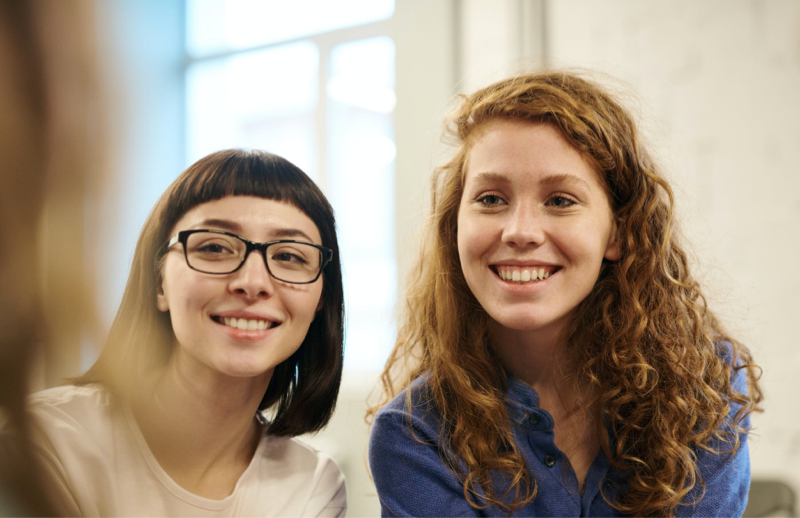Addiction
If you can no longer keep your substance use or a certain behaviour under control, and you feel like it is controlling your life, you might be suffering from an addiction or substance abuse problems.
It made me feel so happy, and everything went so smoothly. I felt like I could take on the entire world.

Did you know this?
The best known addictions are those to alcohol, nicotine, drugs and medication. Besides substances, certain behaviours can be addictive as well, such as gambling, gaming and surfing the internet. In Belgium, approximately 50,000 people are addicted to illegal drugs and more than 700,000 to alcohol. Whether or not someone develops an addiction depends on several factors, like the type of substance involved, or one’s personality and environment. When someone in your family has an addiction or alcohol or substance abuse, you are more vulnerable to it yourself. Yet contextual factors play an important role too.
Different forms of addiction
There are different types of addiction. You can be addicted to a substance like alcohol or drugs but also to medication like painkillers or tranquillisers. Behavioural addictions, on the other hand, refer to the compulsive nature of certain behaviours, such as gambling. The most common behavioural addictions are gambling, gaming, work and sex addiction.
Physically and psychologically addicted
Addiction or dependence manifests itself on two levels:
- Psychological dependence means you increasingly crave a substance. You feel depleted without it and your thoughts are dominated entirely by your use of that substance and how, when and where you can get it.
- Physical dependence arises when your body becomes accustomed to a substance. Your body adapts and develops a certain tolerance for it, which means you always need more and more of that substance to reach the same level of pleasure. When you stop using it for a while, you start to get withdrawal symptoms like sweating, trembling, agitation and sleeping problems.
The consequences of addiction
An addiction is harmful both for your body and mind, and for your surroundings. It can be at the root of health problems, financial difficulties and arguments with loved ones. You start to struggle at school, you feel lonely and you may develop physical issues. There is even a risk that you bring yourself and others into dangerous situations. This is especially true for students.

Talk about it
Are you addicted or worried about addiction, but are you struggling to talk about it? A lot of people feel ashamed and try to find excuses for their addiction. However, an addiction is nothing to be ashamed of, it can happen to anyone.
Speak to someone you feel comfortable with and trust, preferably someone you know well, like a good friend, your parents or a sibling.

If you struggle to talk to someone in your close surroundings, try to approach a person who is familiar with similar experiences, such as a GP or a student advisor at your college or university.
You can also anonymously contact Awel (102 or via www.awel.be), Tele-Onthaal (106 or via tele-onthaal.be) and the Suicide Line (Zelfmoord 1813) for questions regarding suicidal thoughts.
How to tackle your addiction
If you wish to stop or reduce your addiction, you can also find support in online programmes. You can contact Druglijn for any questions concerning alcohol, drugs, medication, gaming and gambling. You can also find self-tests and self-help modules there.
Seek help
Do you feel you can’t manage on your own? Then reach out for professional help. Tackling an addiction without help can be quite dangerous. Moreover, treatment increases your chances of long-term recovery. Druglijn can easily help you find out who you can turn to. Your GP can also help you get back on track and refer you to more targeted help.
Multiple types of assistance and help are available, yet there is no single magical method that will solve all your problems at once. Practically all types of help have a couple of workable elements in common, such as:
- enhancing your motivation to quit or reduce your addiction
- treating withdrawal symptoms
- where appropriate, medication to support you in your recovery
- teaching you to identify your specific risks and triggers
- enhancing your self-confidence, for example by emphasising your abilities and skills
Crossing the line: students & experts sharing their experiences
Alcohol and substance abuse is het central topic of this episode. Host Carola talks to student Louise and professor dr. Ronny Bruffaerts (KU Leuven), expert in the field of mental health issues.
Worried about someone?
Are you worried about a friend who is struggling with an addiction? Talk about it and share your concerns. Try to be understanding and listen to the story without judging them.
Keen to learn, read and hear more about this topic?
Podcasts
Self-help
-
Alcoholhulp allows you to get to work independently or with help if you want to reduce your alcohol consumption or stop drinking altogether. The website also features a self-test. (Dutch)
-
Druglijn enables you to ask any questions you may have about alcohol, drugs, pills, gaming and gambling. Self-tests and self-help modules are also available here.
-
Maxx app supports you in a positive and practical way in your attempt to drink less or stop drinking altogether. (Dutch)
TED Talks and videos
Websites
-
VAD (Vlaams Expertisecentrum Alcohol en andere drugs) is the Flemish expertise centre for alcohol and other drugs. Here you can find relevant info on alcohol, illegal drugs, psychoactive drugs, gaming and gambling. (Dutch)
-
Anonieme Alcoholisten, SOS Nuchterheid, Bewustveranderen and Projectjongeren are self-help groups where you can find shelter, support and practical information. (Dutch)
Powerful stories
You are not alone. Get inspired by other students' stories about vulnerability and doubt. But above all about the power of connectedness.
Go to the stories